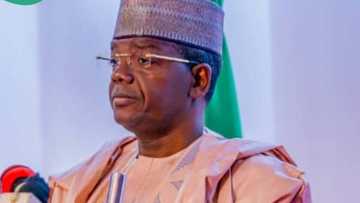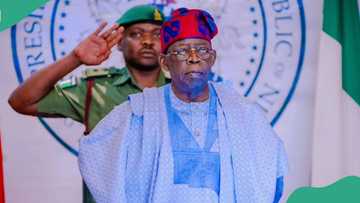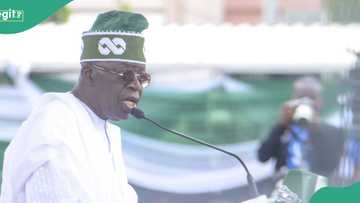IWD: Legal Intricacies, Implications in Suit Seeking 35 Per Cent Affirmative Action for Women
- As the world marks International Women's Day (IWD), Nigeria continues to fight for women's inclusion in government
- In April 2022, the federal high court ruled in favour of the 35 per cent affirmative action, which allows women to be included at all levels of government
- It's 2024, and the national assembly is yet to implement this verdict, one of the lead litigants in the case gave Legit.ng exclusive insights into the legal intricacies involved
PAY ATTENTION: The 2024 Business Leaders Awards Present Entrepreneurs that Change Nigeria for the Better. Check out their Stories!
Legit.ng journalist Segun Adeyemi has over 9 years of experience covering political events, civil societies, courts, and metro
FCT, Abuja - In the early stages of President Bola Tinubu’s presidential campaign, the vice chairman of the Presidential Campaign Council of the All Progressives Congress (APC), Mrs Uju Kennedy Ohanenye, said Tinubu was primed for the women’s course and their enormous participation in governance.
She stated that Tinubu would increase women’s participation in government to at least 35 per cent of all governmental positions, and private institutions would be strongly encouraged to do likewise.
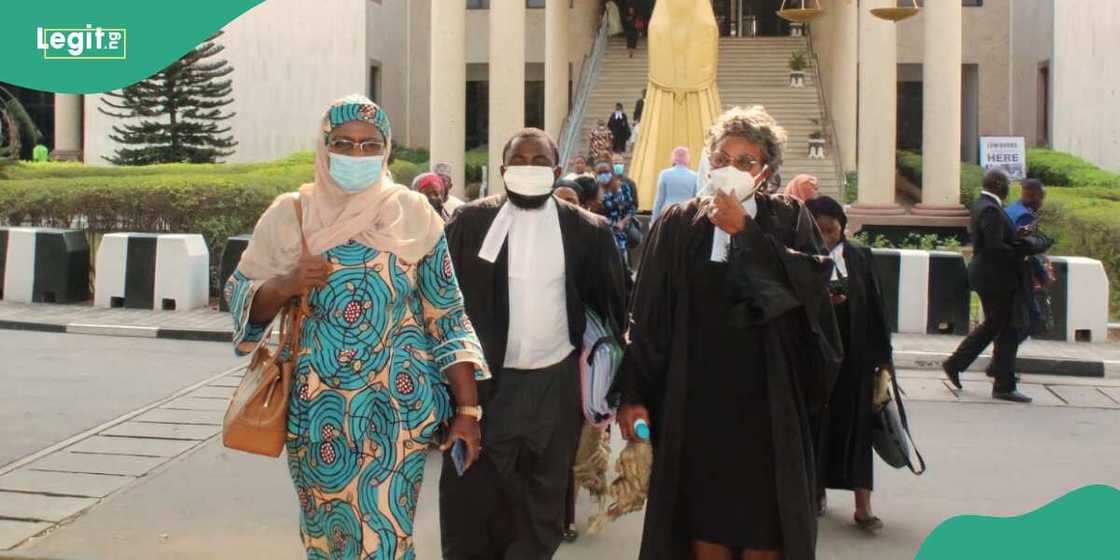
Source: Facebook
Before this statement, the Federal High Court in Abuja made a declaration in 2022 on the national gender policy and the 35 per cent affirmative action for women.
PAY ATTENTION: Share your outstanding story with our editors! Please reach us through info@corp.legit.ng!
Nine civil societies and pro-gender groups, led by the Nigeria Women Trust Fund (NWTF), filed a lawsuit against the federal government, demanding that the House of Assembly pass some of the bills of the national gender policy, with great emphasis on the 35 affirmative actions for women.
Following a series of legal battles between CSOs and the federal government, the court ruled that:
“Dismantling barriers to women’s participation in public spheres has been achieved through progressive interpretation of municipal laws and international obligations and treaties.
“Formulating Policies based on sex, stereotyping, and feudal and patriarchal traditions will no longer be tolerated due to the supremacy of constitutional values.”
Since the federal high court's declaration, President Bola Tinubu and the national assembly have yet to implement the legal order in compliance with the statutory provisions of the 1999 constitution and the international charter of the national gender policy.
Statutes Backing Court Ruling
However, there is a series of legal backing and statutory laws binding these rulings, which the national assembly and President Tinubu have violated.
Virtually all appointments have been made, and only eight women made it to the 48-ministerial cabinet of President Bola Ahmed Tinubu.
However, it has been authoritatively confirmed by Legit.ng that President Tinubu's appointments are illegal due to the refusal to adhere to the April 6, 2022, federal high court ruling.
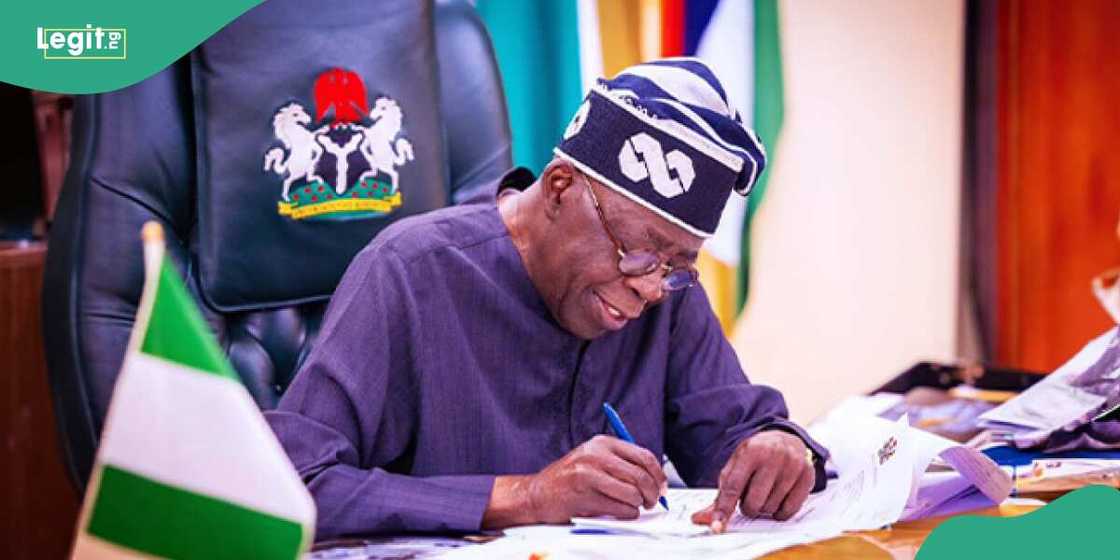
Source: Facebook
In an exclusive interview with Legit.ng, the lead litigant, Barrister Marshal Abubakar, confirmed that all Tinubu's appointments were illegal.
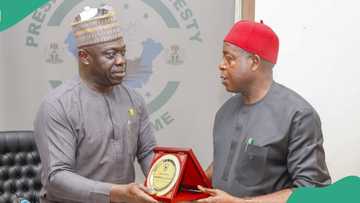
Read also
Economic hardship: Reps beg Tinubu, seeks more funding for amnesty programme, says “N65bn not enough”
He explained that the Nigerian Constitution provides for gender priority in the country, as stipulated in section 42.
He said:
"It clearly provides or prohibits the domination of a particular group or class of persons by another.
"In this way, it also goes to be told that what is obtainable in Nigeria, where you see members of the male gender occupy all the sensitive positions in government, particularly appointed positions in government in the public space, is prohibited by that prohibition."
He stated that these statutes of the constitution triggered the gender inclusion pursuit by the NWTF and other gender groups.
Barr. Abubakar said:
"We had challenged the grounds for instituting the suits as we sought an interpretation of Section 42 of the Constitution.
Also, Section 1473 of the constitution, as I said, Section 143, I think of the constitution.
"If you look at the criminalization of Section 1473, for instance, of the constitution, it provides that in appointing ministers for the federation, there will not be any predominance of a particular group or class of persons over the order.
"So it was on this basis that we challenged, and if you also look at Section 1473, it also prohibits some of these things that the subsequent government has done. Then there is also a law or document called the National Gender Policy."
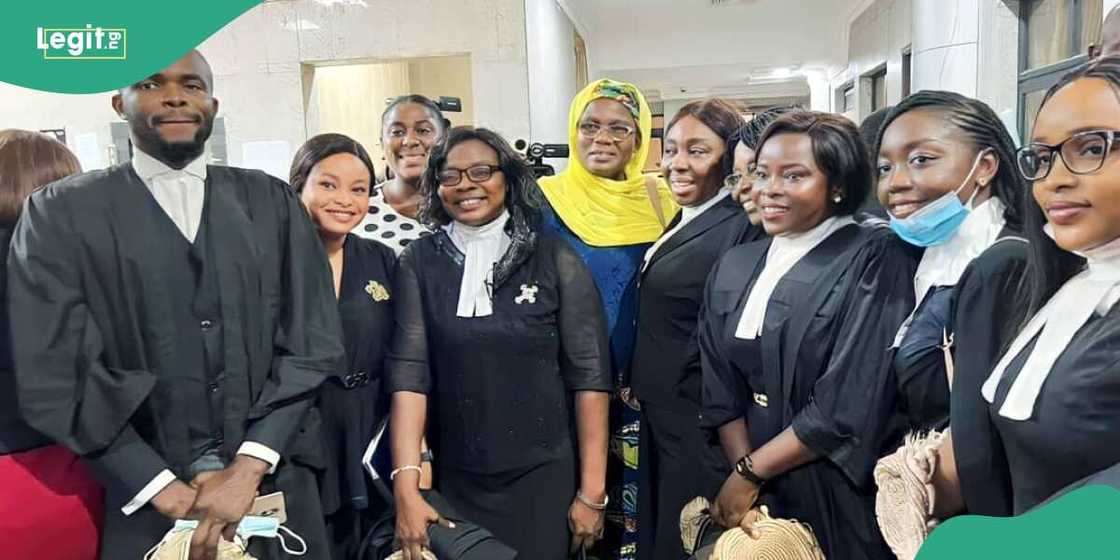
Source: Facebook
He also stated that Articles 2, 13, and 19 of the African Charter prohibit any form of bias in either gender or otherwise in the country or among countries that are signatories to such laws.
The lawyer recounted that these laws fostered the litigation and led to the federal high court ruling in favour of their suit.
He disclosed that the ruling includes prohibitive orders against the federal government and inductive orders against the federal government of Nigeria.
These included orders of mandatory induction against the president because the president himself was the first defendant, and the government supposedly opposed that suit to the law.
The court specifically commanded that the government shall no longer appoint people to appointive positions in the federation without compliance with the principle of the quality of sexes.
Are Tinubu's appointments Illegal?
When asked if the appointments made by Tinubu were legal and in compliance with the provision of the constitution since the court gave its ruling, Barr Abubakar said:
“I can tell you for sure that since the court of law made a prohibitive order against a government institution or agency, anything such an agency or government institution does which violates that particular order is null and void; it’s illegal.”
When asked if the federal government had appealed the ruling, he stated that an attempt had been made, but the legal processes had not been completed to date.
He said the time frame for such an appeal had elapsed, further validating the federal high court ruling in 2022.
At present, the national assembly is still stalling to address this issue, which further raises the question of whether the administration of President Tinubu and the lawmakers are gender sensitive or misogynistic.
Tinubu vows to protect women as group makes case for affirmative action
Meanwhile, President Tinubu's administration has reaffirmed its dedication to promoting women's participation in governance.
This pledge was emphasised by the minister of Women Affairs, Mrs. Uju Kennedy-Ohanenye, during a gender summit held in Abuja and organised by Christian Aid.
Temitope Fashola, the Nigeria country director of Christian Aid, advocated for women's affirmative action as outlined in the national gender policy during discussions with Legit.ng.
PAY ATTENTION: Donate to Legit Charity on Patreon. Your support matters!
Source: Legit.ng


